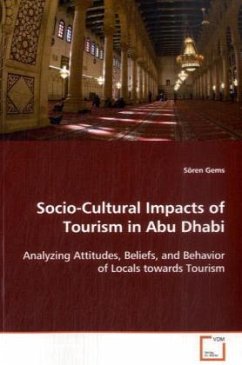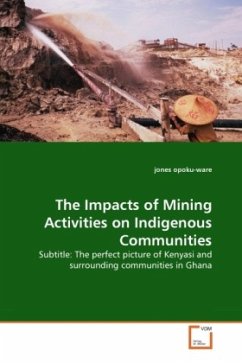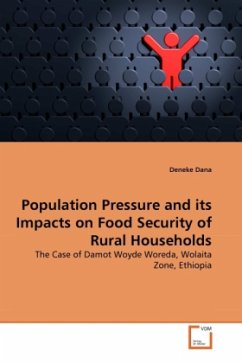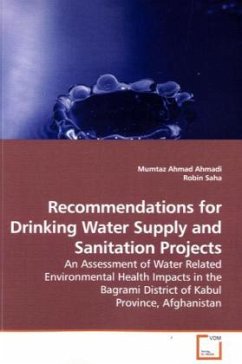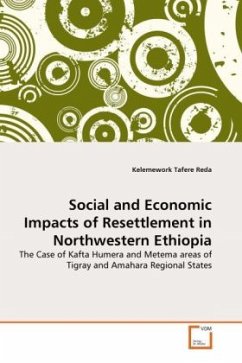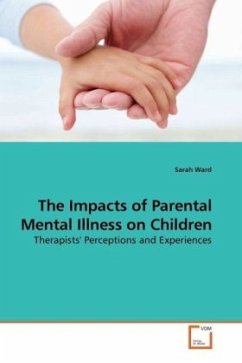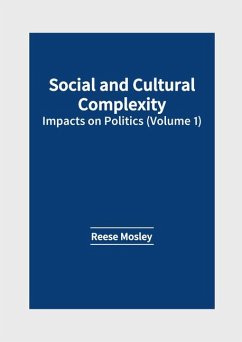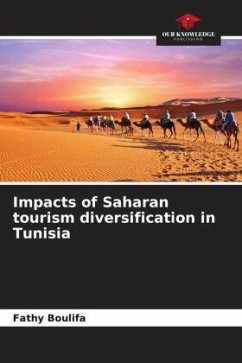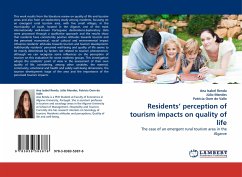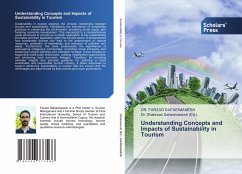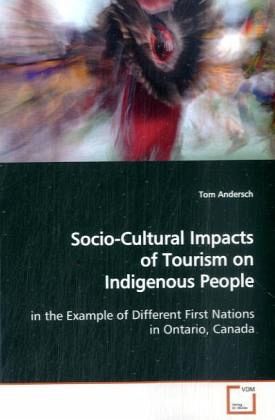
Socio-Cultural Impacts of Tourism on Indigenous People
in the Example of Different First Nations in Ontario, Canada
Versandkostenfrei!
Versandfertig in 6-10 Tagen
39,99 €
inkl. MwSt.

PAYBACK Punkte
20 °P sammeln!
Tourism is often seen as the best way of sustainabledevelopment, especially for discriminated people,like the different indigenous people of the world.Nevertheless, tourism has different kinds of impactson the people most affected, and those impacts can bebeneficial, but also negative.This book is divided in two main chapters. The firstpart, the literature review, forms the theoreticalbackground that is needed for the field study. Inthis chapter, terms like culture, tourism, indigenouspeople and indigenous tourism are discussed. Also, anoverview of the socio-cultural impacts of tourism onthe h...
Tourism is often seen as the best way of sustainable
development, especially for discriminated people,
like the different indigenous people of the world.
Nevertheless, tourism has different kinds of impacts
on the people most affected, and those impacts can be
beneficial, but also negative.
This book is divided in two main chapters. The first
part, the literature review, forms the theoretical
background that is needed for the field study. In
this chapter, terms like culture, tourism, indigenous
people and indigenous tourism are discussed. Also, an
overview of the socio-cultural impacts of tourism on
the host as seen in scholarly literature is given.
The second part is the analysis of field research
conducted on the socio-cultural impacts of tourism on
indigenous people living in Southern Ontario. This
discussion concludes in recommendations for tourism
with fewer negative socio-cultural impacts.
This book aims at tourism decision makers at all
levels. It is a good basis for feasibility studies.
development, especially for discriminated people,
like the different indigenous people of the world.
Nevertheless, tourism has different kinds of impacts
on the people most affected, and those impacts can be
beneficial, but also negative.
This book is divided in two main chapters. The first
part, the literature review, forms the theoretical
background that is needed for the field study. In
this chapter, terms like culture, tourism, indigenous
people and indigenous tourism are discussed. Also, an
overview of the socio-cultural impacts of tourism on
the host as seen in scholarly literature is given.
The second part is the analysis of field research
conducted on the socio-cultural impacts of tourism on
indigenous people living in Southern Ontario. This
discussion concludes in recommendations for tourism
with fewer negative socio-cultural impacts.
This book aims at tourism decision makers at all
levels. It is a good basis for feasibility studies.



